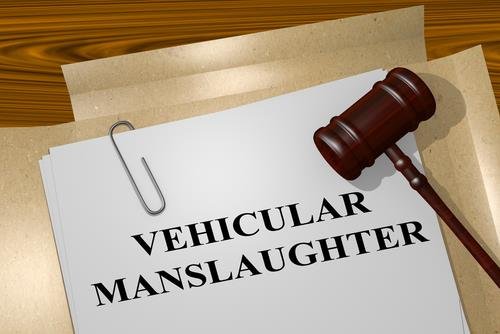Allegations involving child molestation in Georgia are among the most serious criminal charges a person can face. The law is strict, the consequences are severe, and the social stigma attached to such charges can be life changing even before a conviction occurs. Understanding what constitutes child molestation under Georgia law, what penalties may apply, and what legal defenses are available is critical for anyone facing such accusations. Consulting with top rated criminal defense attorneys in Cumming, Georgia can provide clarity, guidance, and a stronger foundation for building a defense.
Get the Legal Guidance You Need
When facing such high-stakes accusations, timely legal representation is essential. A defense attorney based in Cumming, Georgia, can provide the experience, discretion, and commitment to justice needed in these difficult moments. Understanding both the legal complexity and the personal toll these accusations can take, a skilled attorney works to protect your rights at every stage of the process.

📍 Office Address: 2100 Westshore Drive, Suite 119, Cumming, Georgia 30041
📞 Call Today: (470) 505-9791
📧 Email: jennifer@lawofficeofjenniferscalia.com
If you or someone you care about is facing charges, reach out today for a confidential consultation and take the first step toward building a strong defense.
What Is Considered Child Molestation in Georgia?
Child molestation generally refers to any immoral or indecent act performed with or in the presence of a child under the age of 16, with the intent to arouse or satisfy sexual desires either of the person committing the act or the child.
This law does not require physical contact to apply. For example, exposing oneself to a minor or engaging in explicit communication may be considered child molestation if there’s intent involved. Even indirect actions can lead to serious charges if the prosecution believes the intent was sexual.
Aggravated Child Molestation
There is also a more serious classification: Aggravated Child Molestation In Georgia, which occurs when the alleged act physically injures the child or involves an act of sodomy. The penalties for this offense are even more severe and carry mandatory minimum sentences.
Key Elements Prosecutors Must Prove
To secure a conviction for child molestation, prosecutors typically must demonstrate:
- The alleged victim was under 16 years of age.
- The accused performed, or caused to be performed, an immoral or indecent act.
- There was an intent to arouse or satisfy sexual desires.
Intent is often the most heavily debated aspect of the case. It’s not uncommon for people to misinterpret actions or for accusations to arise from emotionally charged situations like custody disputes or family conflicts.
Child Molestation and Aggravated Child Molestation in Georgia
Child molestation charges in Georgia are among the most serious criminal offenses, carrying severe legal and personal consequences. Even a first-time accusation can significantly impact every aspect of a person’s life, from reputation to future opportunities.
Aggravated child molestation is treated even more seriously under Georgia law, with harsher penalties and stricter legal procedures. Both charges require a strong legal defense and a clear understanding of how these cases are investigated and prosecuted..
Possible Defenses to Child Molestation Charges
Being charged is not the same as being convicted. There are legitimate defenses that may apply depending on the facts of the case. Some possible strategies include:
1. False Allegations
In emotionally intense situations such as divorces or custody battles false accusations can occur. Children may be influenced by adults or misunderstand situations, and sometimes accusations are made with malicious intent.
2. Lack of Intent
Since the law hinges on sexual intent, a defense might involve showing that the actions in question were misinterpreted and not done with any inappropriate motive.
3. Mistaken Identity
There are cases where the accused was misidentified by the child or witnesses. This is especially relevant when the alleged incident happened in a setting with multiple adults present.
4. Insufficient Evidence
Child molestation charges can sometimes be based on statements alone, with little or no physical evidence. When the prosecution lacks solid evidence, this can be a strong point of defense.
The Importance of Legal Representation
Child molestation cases are extremely complex both legally and emotionally. Defending against these charges requires a thorough understanding of Georgia’s criminal laws, as well as experience in navigating sensitive matters involving children, family dynamics, and forensic evidence.
Every case is different, and even seemingly minor details can dramatically influence the outcome. If you or someone you care about is facing such allegations, it is critical to act quickly and to explore all available legal options with an experienced defense attorney.
What to Do If You Are Accused
- Do not speak to police or investigators without legal counsel. Even informal conversations can be used against you.
- Preserve any evidence messages, videos, documents, or interactions that could support your case.
- Avoid discussing the case publicly or on social media, even if you believe you’re innocent.
- Seek legal help immediately to protect your rights and start building a defense strategy.
The earlier a defense strategy is developed, the better the chances of a favorable outcome whether that means reduced charges, dismissal, or acquittal.
Frequently Asked Questions (FAQs)
1. Can someone be arrested for child molestation in Georgia without physical evidence?
Yes. In Georgia, a person can be arrested based on an accusation or the testimony of a minor alone, particularly if the child’s statement is deemed credible by law enforcement. However, lack of physical evidence can be a significant factor in building a defense.
2. Is it possible to avoid prison for child molestation charges?
In limited circumstances, alternatives such as negotiated pleas, first offender treatment, or evidence-based dismissal may be possible but it heavily depends on the facts, prior record, and legal representation.
3. Will someone convicted of child molestation always be listed on the sex offender registry?
Almost always, yes. Convictions for child molestation typically require mandatory registration as a sex offender in Georgia. This comes with long-term consequences, but some individuals may be eligible to petition for removal after a period of time.
Final Thoughts
Child molestation laws in Georgia are strict, and the impact of a charge let alone a conviction can follow someone for life. While the law is designed to protect children, it’s also essential that individuals accused of these serious crimes are given a fair chance to defend themselves and avoid unjust outcomes.
If you or someone you know is facing child molestation charges in Georgia, it’s crucial to act quickly, remain silent, and seek experienced legal help.
Contact Today to Discuss Your Case
📞 Phone: (470) 505-9791
📧 Email: jennifer@lawofficeofjenniferscalia.com
📍 Location: 2100 Westshore Drive, Suite 119 Cumming, Georgia 30041




